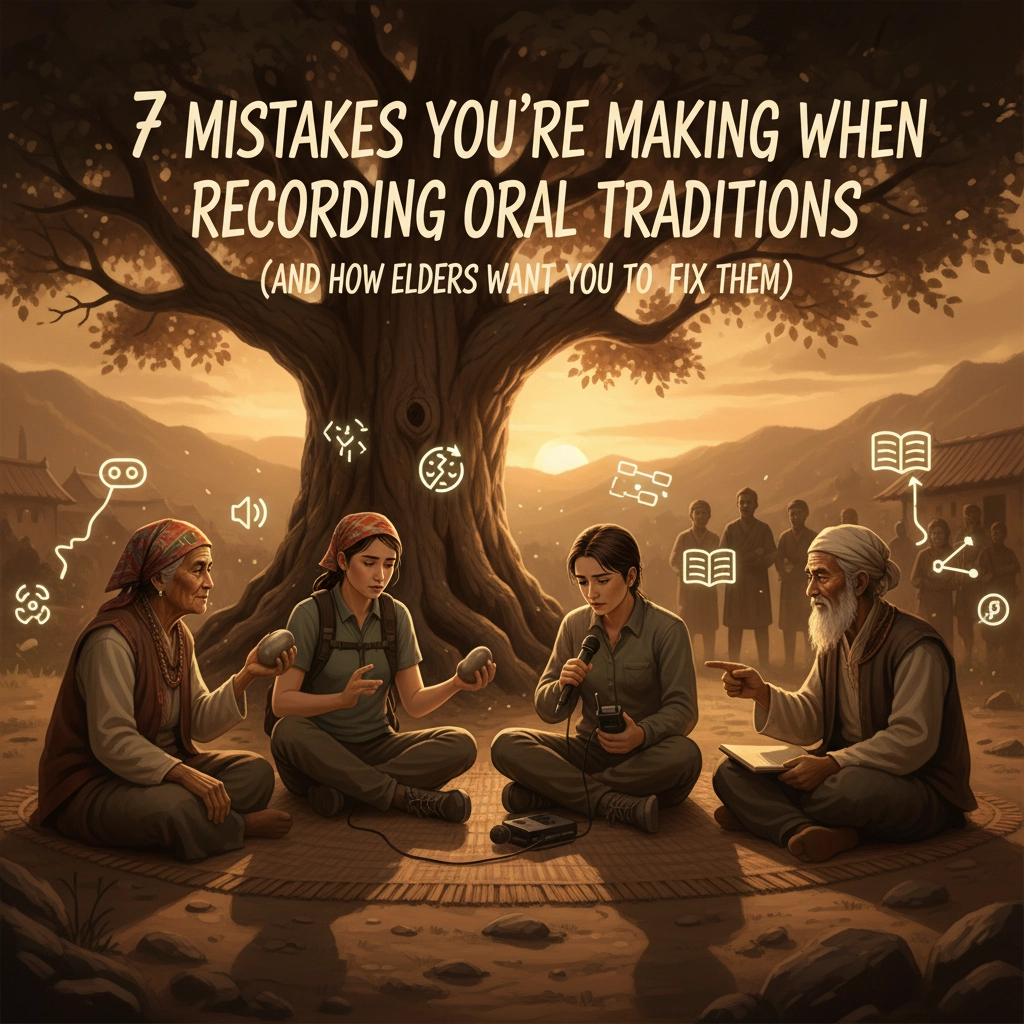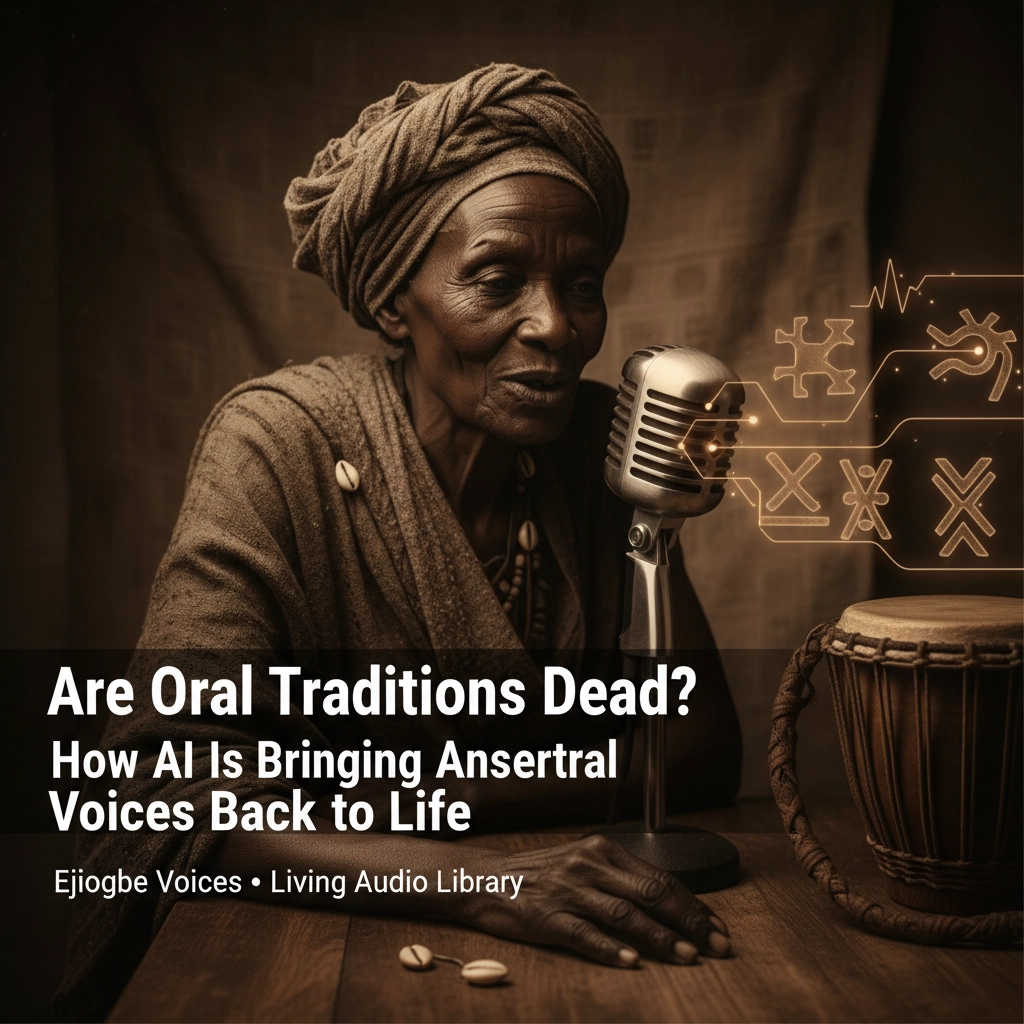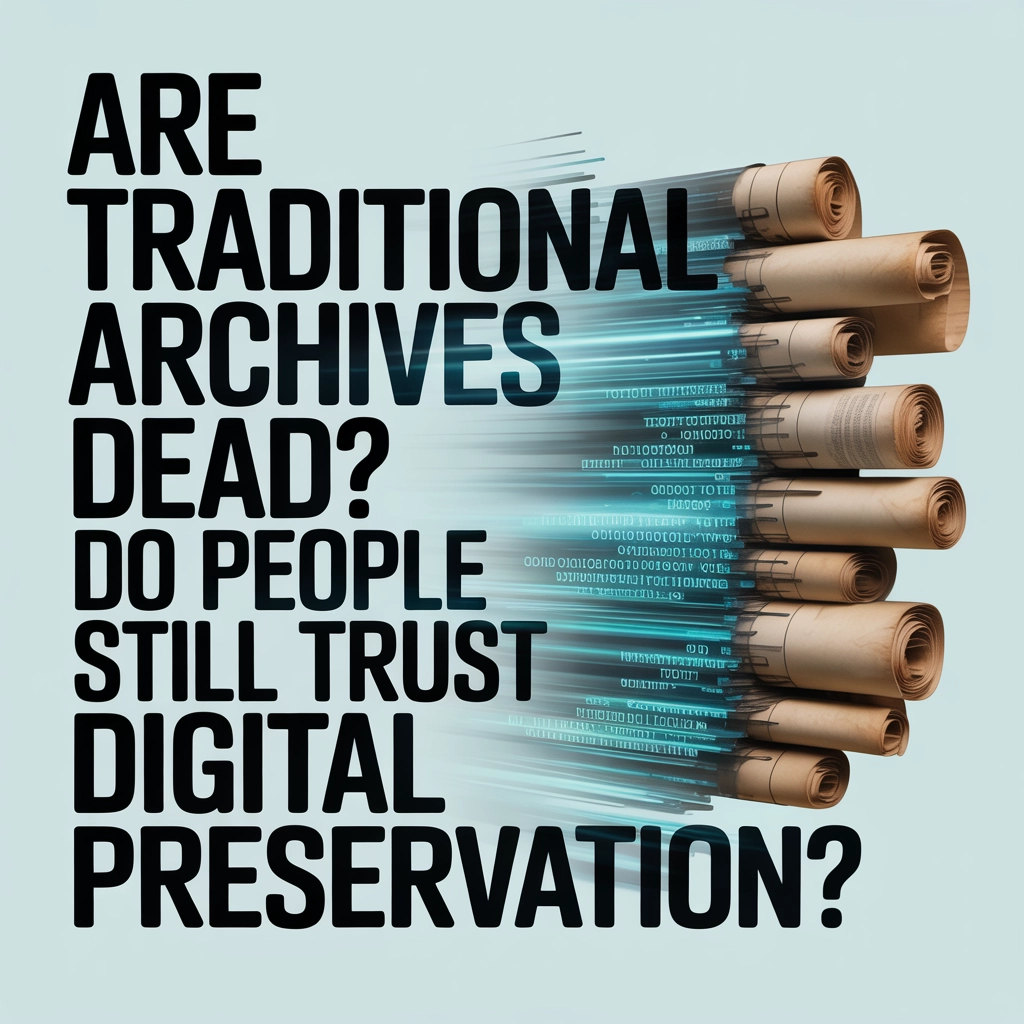Recording the wisdom of our elders represents one of humanity's most sacred responsibilities. Yet despite our best intentions, many of us approach these precious conversations with technical fumbles and cultural missteps that can transform meaningful exchanges into frustrating encounters. Understanding these common pitfalls, and more importantly, how our elders wish us to address them, can elevate your oral tradition preservation from missed opportunities into profound connections that honor ancestral voices.
Mistake #1: Approaching Elders with Unfamiliar Equipment
The most fundamental error occurs when we arrive at an elder's doorstep with recording devices we barely understand. Taking a digital recorder or smartphone app without mastering its operation beforehand shows disrespect for the precious time and stories our elders are willing to share.
How Elders Want You to Fix This:
Elders appreciate thorough preparation that demonstrates reverence for their narratives. Spend time practicing with your recording equipment days before the interview. Test different settings, understand how to adjust volume levels, and know how to quickly resume recording if interrupted. This technical competence allows the conversation to flow naturally without awkward pauses or missed segments of wisdom.
Consider investing in quality recording tools that capture the full richness of an elder's voice. Poor audio quality can obscure subtle inflections and emotional nuances that carry deep cultural meaning. When elders see you've invested in proper equipment and learned to use it skillfully, they recognize your serious commitment to preserving their heritage.
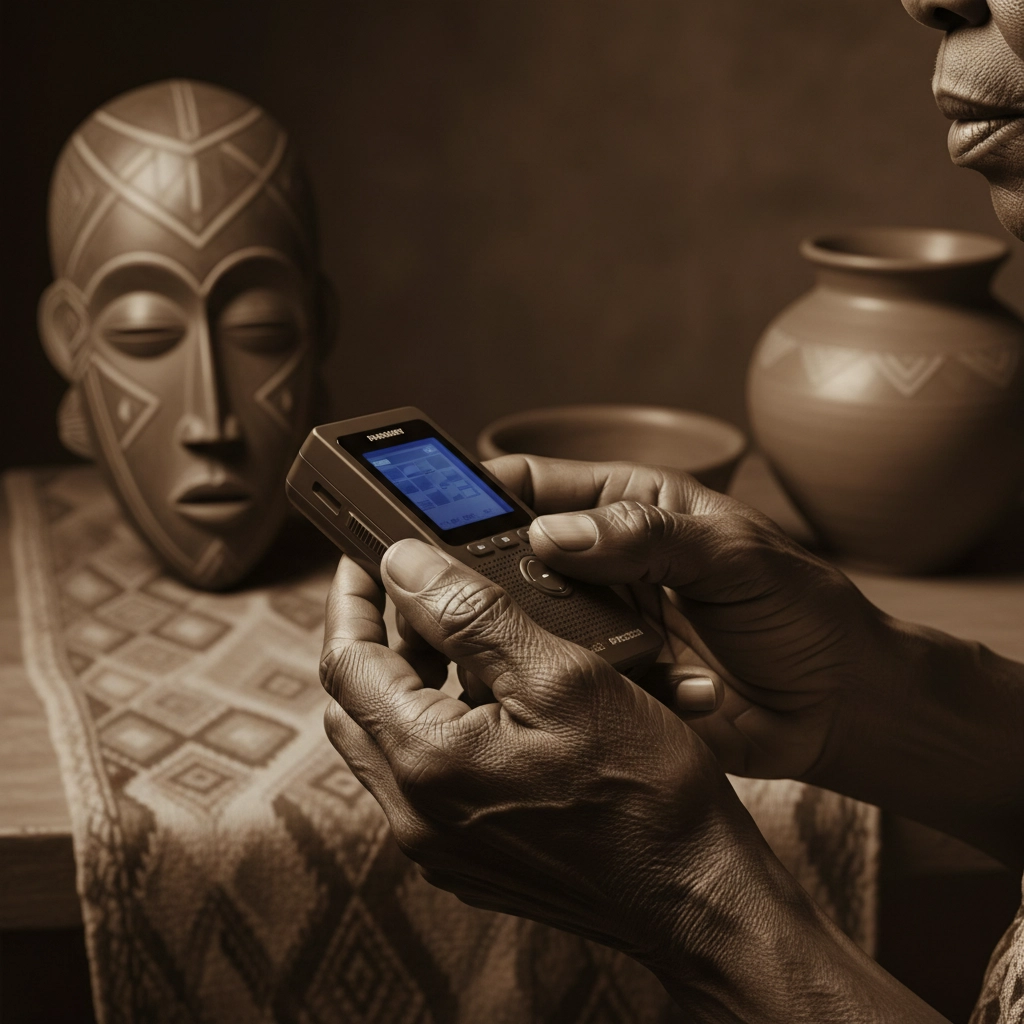
Mistake #2: Creating Chaotic Recording Environments
Many well-meaning family members schedule recordings in noisy, distracting environments where televisions blare, traffic intrudes, or household activities create constant interruptions. These chaotic settings not only produce poor-quality recordings but also fragment an elder's ability to maintain deep, reflective storytelling.
How Elders Want You to Fix This:
Elders prefer quiet, comfortable spaces where their voices can be heard clearly and their thoughts can flow uninterrupted. Ask permission to temporarily adjust the environment, moving distracting decorations, turning off background music, or finding a room away from household traffic.
The physical comfort of your elder matters enormously. Ensure adequate lighting so they can see your face and any photographs or documents you might reference. Provide comfortable seating and maintain an appropriate room temperature. These considerations show respect for their physical needs and create an atmosphere conducive to sharing deep memories and cultural knowledge.
Mistake #3: Conducting Interviews Without Proper Preparation
Perhaps the most damaging mistake involves approaching oral history with the assumption that you can simply "turn on a recorder" and capture instant wisdom. This hasty approach often results in superficial conversations that barely scratch the surface of an elder's rich experiences and cultural knowledge.
How Elders Want You to Fix This:
Elders want you to conduct thoughtful background research before approaching them. Review family photographs, examine historical documents, and identify specific themes or time periods you'd like to explore. This preparation demonstrates that you value their stories enough to create meaningful context.
Develop both open-ended questions that encourage detailed storytelling and specific questions that help trigger particular memories. For example, instead of asking "Tell me about your childhood," consider "What sounds do you remember from your grandmother's kitchen when you were seven years old?" This specificity helps elders access vivid, culturally rich details that might otherwise remain unshared.
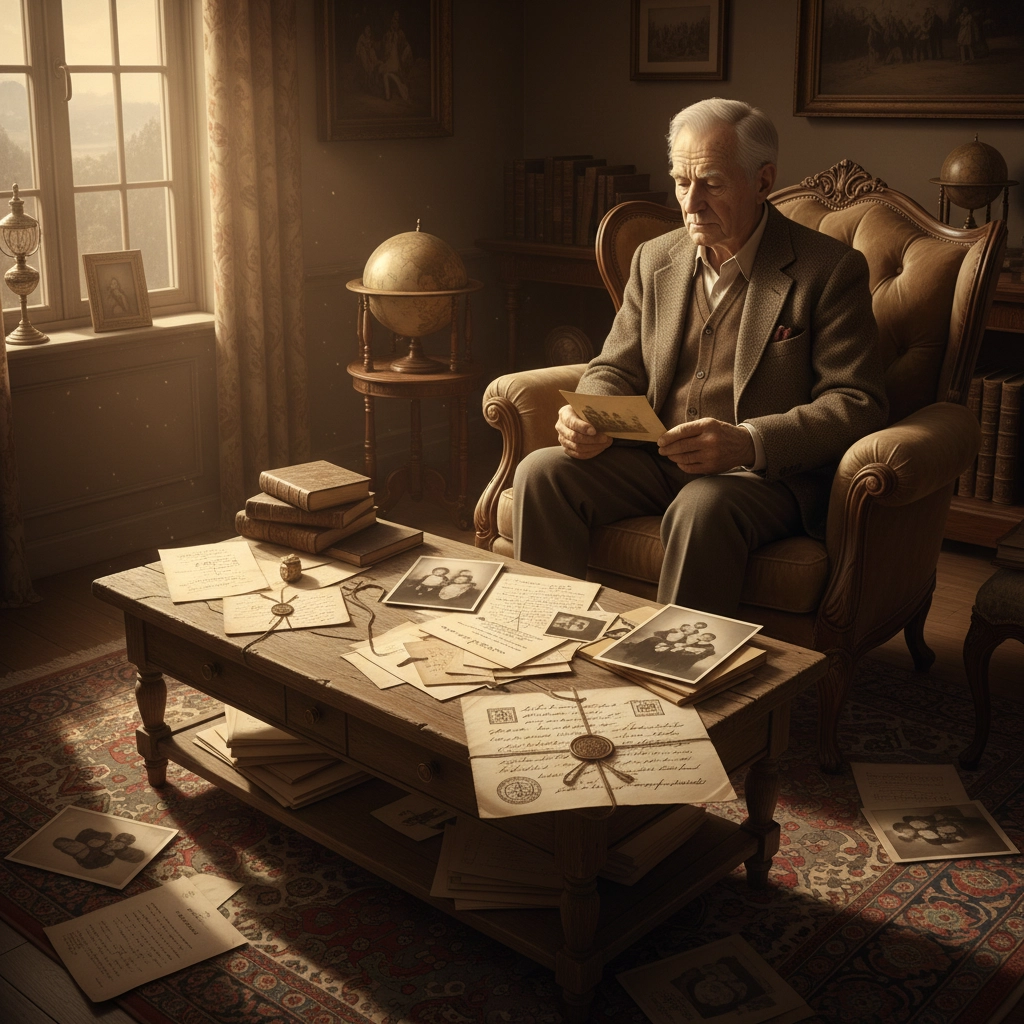
Mistake #4: Treating Conversations Like Interrogations
Many amateur oral historians approach elders with rigid question lists, treating the interaction more like a formal interview than a natural conversation. This interrogation-style approach can make elders feel uncomfortable and may prevent them from sharing the spontaneous insights that often prove most valuable.
How Elders Want You to Fix This:
Elders prefer conversational partners who listen actively and respond naturally to their narratives. While preparation remains important, allow the conversation to flow organically. When an elder mentions something intriguing, ask follow-up questions that demonstrate genuine interest and understanding.
Think of yourself as a conversation facilitator rather than an interviewer. Share appropriate reactions and ask clarifying questions that show you're truly engaged with their stories. This approach creates a comfortable dynamic where elders feel heard and valued, often leading them to share deeper, more personal cultural insights.
Mistake #5: Ignoring Physical and Emotional Limitations
Many family members plan recording sessions that extend too long without considering an elder's physical stamina or emotional capacity. Lengthy interviews can lead to fatigue, which diminishes the quality of stories shared and may create negative associations with the recording process.
How Elders Want You to Fix This:
Elders appreciate when you pay attention to both verbal and non-verbal cues indicating they need rest or a break. Plan sessions of no more than one hour, with flexibility to end earlier if needed. Watch for signs of fatigue, distress, or discomfort, and be willing to pause or reschedule rather than push through.
Respect the emotional weight of certain topics. Some memories may be difficult to revisit, and elders need time to process these experiences. Create space for emotions and allow natural pauses in conversation. Sometimes the most profound cultural transmission happens in these quiet moments of reflection.
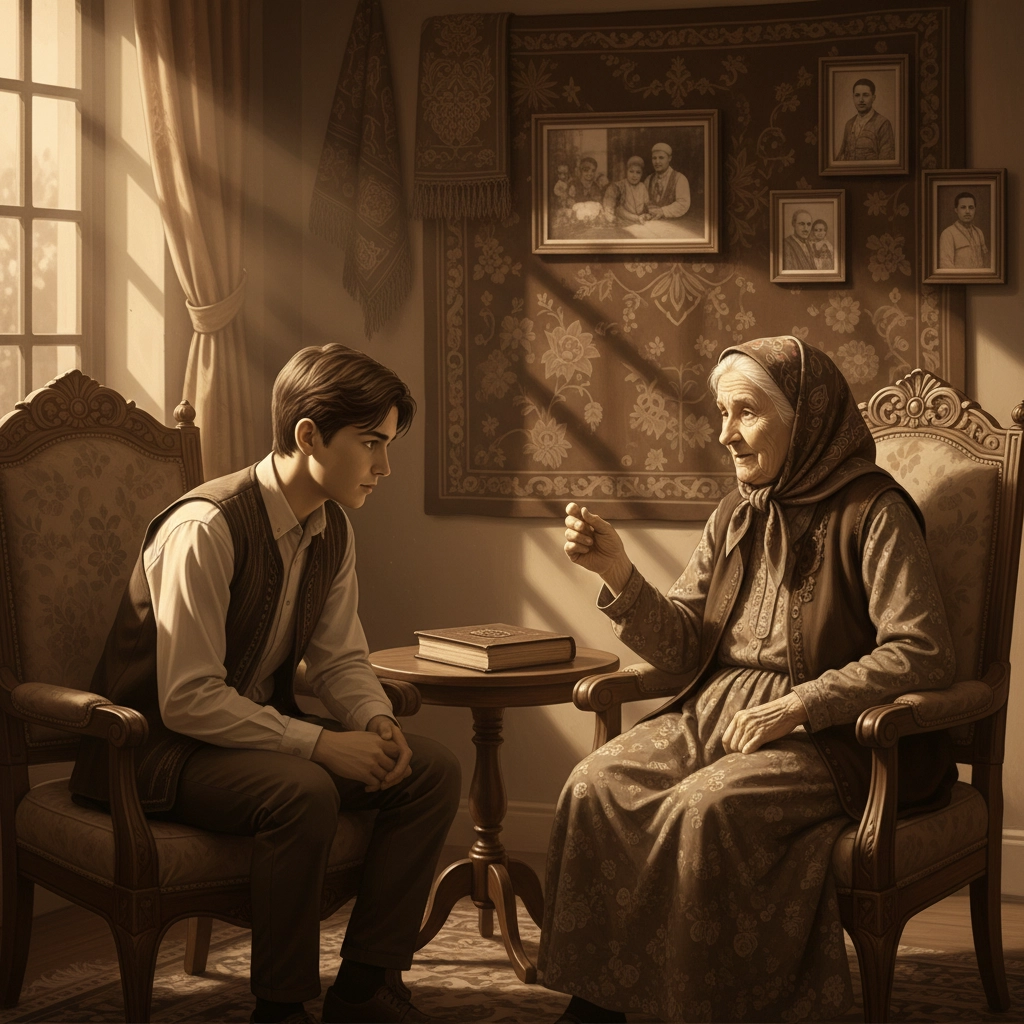
Mistake #6: Making Excessive Interruptions During Recording
Well-intentioned interviewers often make too many audible responses during an elder's storytelling, saying "mm-hmm," "yes," or "really?" throughout their narratives. While these responses show engagement, they can significantly diminish recording quality and interrupt the natural flow of an elder's wisdom sharing.
How Elders Want You to Fix This:
Elders prefer attentive listeners who can demonstrate engagement without constant verbal feedback. Practice active listening through eye contact, nodding, and appropriate facial expressions rather than audible responses. Save your verbal reactions for natural pauses in their storytelling.
When you do respond verbally, make it meaningful. Ask thoughtful follow-up questions or share brief, relevant connections that demonstrate your understanding. This approach keeps their voice as the central focus of the recording while still maintaining the conversational connection elders value.
Mistake #7: Poor Organization and Follow-Through
The final critical mistake involves treating completed recordings as finished products rather than the beginning of a preservation process. Many family members store recordings with minimal labeling or organization, essentially burying these precious cultural artifacts where they can't benefit future generations.
How Elders Want You to Fix This:
Elders want their stories properly organized and made accessible to family members and community members who will benefit from hearing them. Create comprehensive labels that include names, dates, topics covered, and any cultural context that might help future listeners understand the significance of specific stories.
Develop multiple backup systems for your recordings, including cloud storage and physical copies stored in different locations. Consider creating transcripts that preserve the elder's words even if technical files become corrupted. Share completed recordings with family members in formats they can easily access and enjoy.
Most importantly, follow up with your elders about the recordings. Let them know how their stories are being preserved and shared. Many elders find great satisfaction in knowing their cultural knowledge continues to educate and inspire younger generations.
Honoring the Sacred Trust
Recording oral traditions represents a sacred trust between generations. When we approach this work with proper preparation, cultural sensitivity, and genuine reverence for our elders' wisdom, we create lasting bridges between past and future that strengthen our entire community's cultural foundation.
The time we invest in avoiding these common mistakes pays dividends in richer conversations, higher-quality recordings, and deeper cultural connections. Our elders possess irreplaceable knowledge about traditions, values, and ways of being that can guide and inspire future generations: but only if we create the proper conditions for this wisdom to be shared and preserved.
At Ejiogbe Voices, we understand that preserving cultural heritage requires both technological innovation and deep respect for traditional wisdom-sharing practices. By avoiding these common mistakes and honoring our elders' preferences for how their stories should be captured and preserved, we ensure that ancestral voices continue to guide and inspire communities around the world.
The wisdom of our elders awaits. The question remains: Will we approach this sacred responsibility with the reverence and preparation it deserves?

